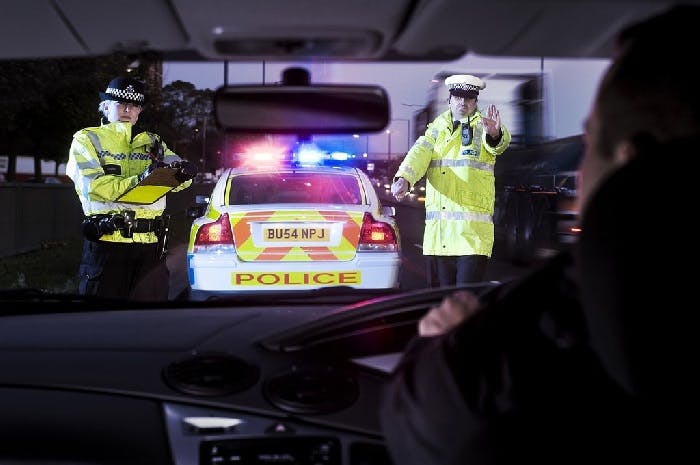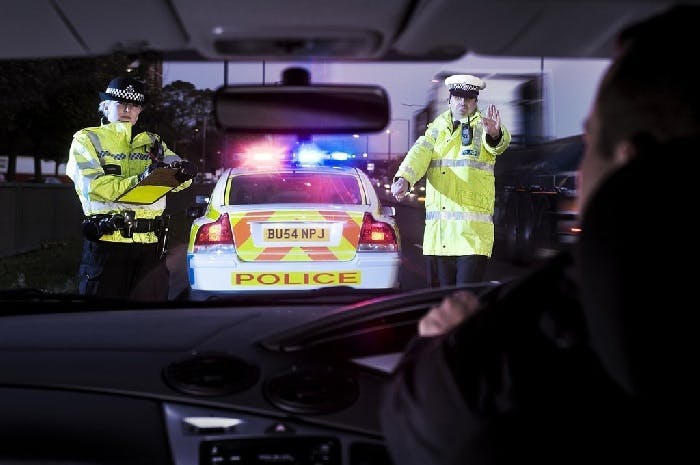
Though we all know speeding is illegal, virtually every driver will break the limit at some time or another. We're not talking about the really flagrant cases here. Instead, it's often the times we go one mile per hour too quickly that catch us out. This, then, begs an important question: is it ever okay to drive just over the speed limit?
We've created this guide in order to answer all your questions on the topic. What really happens if you drive just above the speed limit? Does the 10% rule really exist? And what consequences can you face if you break the law? Read on for all the answers you need.
Speed limits
Let's start with the reality: even if you drive just 1 mph over the limit, you're still breaking the law. Speed limits are there for a reason, so don't ignore them! Furthermore, speed limits are just that—a limit, rather than a recommended speed. Indeed, rule 125 of the Highway Code has this to say on the matter:
“The speed limit is the absolute maximum and does not mean it is safe to drive at that speed irrespective of conditions. Driving at speeds too fast for the road and traffic conditions is dangerous. You should always reduce your speed when:
- The road layout or condition presents hazards, such as bends
- Sharing the road with pedestrians, cyclists and horse riders, particularly children, and motorcyclists
- Weather conditions make it safer to do so
- Driving at night as it is more difficult to see other road users”
In some instances, though, a driver may be genuinely unaware that they are speeding. If you've got a sat nav that measures your speed, for example, you might have noticed that it occasionally contradicts the speed shown on your speedometer. This is because speedometers aren't always the most reliable. What looks like 50 mph could actually turn out to be 48 mph or even 52 mph! This is where the ‘10% rule’ comes in…
The 10% Rule
On paper, as soon as you go over the speed limit, you're committing a driving offence. In reality, however, there can be some leeway. That's because the National Police Chiefs' Council (NPCC) urges police officers to use their discretion when dealing with drivers who break the speed limit. To be more specific, they recommend only handing out speeding tickets if a driver surpasses the speed limit by 10% plus 2.
The truth here, of course, is that it isn't quite a ‘10% rule’, but instead a 10% recommendation. Police officers are under no obligation to ignore your offence, even if you were only just above the speed limit. That is why we advise drivers not to risk it. Though it's true that you could get away with speeding, breaking the law is more hassle than it's worth. Getting to your destination a few minutes earlier simply isn't worth it.
If you're caught speeding, you could end up with a hefty fine, penalty points and even disqualification from driving altogether. So, if you want to stay on the right side of the law, we'd suggest following the speed limits properly. (Just imagine your old driving instructor sitting next to you while you drive!)
What happens if I'm caught driving above the speed limit?

If you've been caught speeding, whether by a police officer or speed camera, you could end up with:
- A verbal warning
- An invitation to attend a speed awareness course
- A Fixed Penalty Notice (FPN)
- A summons for court
When the police pull you over for speeding, they'll ask you to produce your driving licence, proof of insurance and a valid MOT. If you can't present them straightaway, you'll need to take them to your local police station within 7 days.
Receiving a Notice of Intended Prosecution (NIP)
Drivers caught speeding will receive a Notice of Intended Prosecution (NIP). It's your responsibility to reply to this and inform the police of who was driving the car at the time of the offence. Unless you're eligible for a speed awareness course (which we'll discuss below), you'll receive either a Fixed Penalty Notice (FPN) or a letter telling you to go to court.
When you receive a FPN, you have the option to plead guilty or not guilty. If you accept the FPN, you'll have to pay a £100 fine and also accept 3 penalty points which will immediately be added to your driving licence.
If you opt instead to plead not guilty, you will have to go to court. Here, you can end up with a heftier fine and even more penalty points if the court determines that you are guilty of speeding. The exact figure will vary, however, by the speed limit and the amount by which you exceeded it. You can see the full breakdown in the table below…
TABLE
Factors that can affect the severity of your speeding sentence
The court can decide to increase the severity of your speeding sentence under certain circumstances, such as:
- Previous driving offences on record: if it's not been long since you were last caught speeding, you can expect to face harsher penalties.
- Adverse weather: drivers are taught to take extra care during poor weather conditions. If you've ignored this, there's a good chance you'll be punished further.
- Location of the offence: if you were caught speeding near a school, with a high volume of vulnerable road users, then you'll almost definitely end up with a harsher penalty.
Other factors include the number of pedestrians in the area, if you were towing a caravan or trailer, if you had passengers or if you still refuse to acknowledge your offence.
Not every factor will make your sentence harsher, though. In fact, there are a few cases in which the court might opt to reduce your speeding sentence:
- If you had a genuine emergency that forced you to drive over the speed limit
- A clean driving record
- If you show clear remorse and good character
Drivers who passed their practical test within the last 2 years are deemed new drivers. If you fall into this category, then your driving licence will be revoked if you end up with 6 or more penalty points.
Speed awareness courses
In certain cases, drivers who are caught speeding will be invited to a speed awareness course. If you take one, you won't receive 3 penalty points—you'll simply have to pay between £80 and £100 for the course fee. There are a few stipulations, however:
- You have to admit to being the driver of the vehicle
- You can't have attended a speed awareness course within the 3 years prior to your current speeding offence
Additionally, your speed needs to fall under certain limits laid out by the police. The table below highlights the minimum and maximum speeds allowed by the police when inviting drivers onto these courses. Bear in mind, however, that these limits will vary depending on your location.
TABLE
If you do turn out to be eligible for a speed awareness course, you'll receive an offer letter from the police. It's then up to you to decide whether or not to accept the offer, or turn it down and take the fine and penalty points. You'll be able to book your speed awareness course online. The letter will give you all the information you need to sort it all out. Don't put it off too long, though, as you've only got up to 12 weeks after the date of your speeding offence.
If you'd like to learn more about this, head on over to our comprehensive guide to speed awareness courses.
FAQs
1. How long does it take to receive a speeding ticket?
Typically, you'll receive the Notice of Intended Prosecution (NIP) within 14 days of being caught speeding. It can vary, however, depending on whether you were caught by a speed camera or an individual police officer.
2. How much will my speeding fine be?
The minimum fine you can receive for speeding is £100. If you end up in court, however, this can be much higher. There are three band categories that highlight how much you exceeded the speed limit by. If you fall into Band A, you'll have to pay between 25 and 75% of your weekly income. Band B offenders, meanwhile, will pay 75 to 125% of their weekly income. Finally, offenders in Band C will need to pay 125 to 175%.
3. Do I have to go to court if I'm caught speeding?
It depends. If you receive an NIP and accept the fine and points, then you won't have to. If, however, you decided to plead not guilty, or you're found to have been speeding by an excessive amount, you'll have to head to court.
4. Will my insurance premiums be affected if I'm caught speeding?
This will depend on your circumstances. If you get a fine and penalty points, then your premiums are likely to increase. This is because insurers see drivers with a criminal record as being riskier to insure. If, on the other hand, you get an invitation to take a speed awareness course, then you won't have to accept any penalty points. Your premiums will, therefore, remain the same.
5. I wasn't offered a speed awareness course even though I meet the requirements. Why is this?
Each police force has its own rules regarding which drivers receive invitations to speed awareness courses. In fact, forces are under no obligation to offer the courses at all! You can't assume, therefore, that you'll get a place on the course. You can only be sure once you've received an invitation.
6. Do I have to tell my insurer if I take a speed awareness course?
Nope! Taking a speed awareness course means that you don't have to take the penalty points usually handed to drivers caught speeding. As such, your insurer doesn't need to know.
7. What happens if I don't show up to my speed awareness course?
Firstly, the course providers will immediately let the police know that you didn't show up to the course. The police will then decide on the next course of action. You will either be offered another date, or end up with a Fixed Penalty Notice and penalty points. If you can't attend your speed awareness course due to illness, then get in touch with the course provider ASAP to avoid any confusion.
8. How long will penalty points stay on my driving licence?
It all depends on the driving offence. Points will stay on your driving record for 4 or 11 years. You can be disqualified from driving if you receive 12 or more within 3 years. If you're a new driver, and you get 6 or more within two years of passing your test, your licence will be revoked.
Subscribe for driving advice, offers & more
We'd love to let you know about our courses, news and offers via email. You may unsubscribe at any time.
Star Genie Limited trading as PassMeFast. Company number 10093359
Copyright © 2024 owned by Star Genie Limited
PassMeFast, Blue Tower, MediaCityUK, Salford, M50 2ST
